Investigations
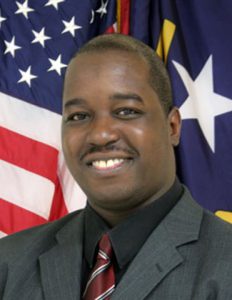
919-580-4241
Investigators
The Investigations Sergeant oversees 11 Investigators (Detectives). It is the Sergeant’s responsibility to assign cases that require additional investigation to a specific Investigator. Assignments received usually consist of specific cases to be followed to conclusion, and normally close with the preparation of a case for prosecution. This aspect of the work distinguishes the Investigator from other police officers who make preliminary investigations of cases at the scene of the crime.
Juvenile Investigator
One Investigator is assigned to investigate felonies committed by juveniles, sexual assaults on juveniles and adults, child abuse and neglect allegations, and missing juveniles and adults. This Investigator works closely with the Department of Social Services and the Department of Juvenile Justice and Delinquency Prevention in joint investigations. Other duties of this position include preparing cases for trial and testifying in court.
The Investigators:
- Investigate criminal violations
- Question witnesses and victims and gather crime data
- Process evidence
- Develop informants
- Prepare case files
- Interrogate suspects
- Conduct surveillance
- Testify in court
- Prepare and maintain detailed records
- Serve warrants
- Make arrests on their cases, and others.
If you have been the victim of a crime and would like to find out if an investigator has been assigned to your case, contact us at (919)580-4210.
Community Police Services Division
Fingerprints for Employment, Precious Metal Permits, Adoption, etc.
*By Appointment ONLY*
Call 919-580-4252 or 919-580-4244
to make an appointment.
Wednesdays from 8am – 10am, 1pm – 3pm
The cost is $10, cash only.
Picture ID is required.
We do not offer Live Scan fingerprinting.
Child Car Seat Information
Have Questions
Honor Guard
The Honor Guard is a select group of officers that have a strong desire to represent the Goldsboro Police Department and the City of Goldsboro on special events or occasions.
The Honor Guard is given the task of attending:
- Parades
- Funerals of fallen officers throughout the state
- Funerals of City leaders
- Funerals of family members of Goldsboro Officers
- Other special events.
This team of officers, the Goldsboro Police Department Honor Guard, is ready to serve.

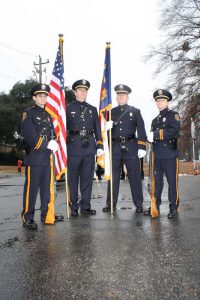
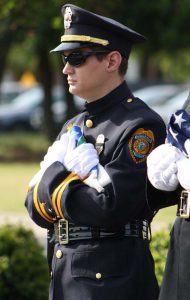
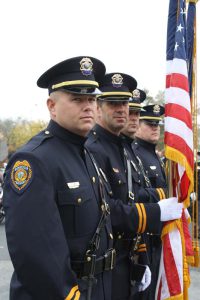
Crime Scene Unit
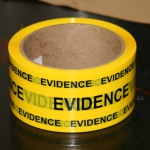 The Evidence/Crime Scene Unit processes major crime and death scenes similar to those dramatized on popular crime drama television programs. Personnel assigned to the unit are responsible for collecting, storing, and processing all evidence and property for the Goldsboro Police Department.
The Evidence/Crime Scene Unit processes major crime and death scenes similar to those dramatized on popular crime drama television programs. Personnel assigned to the unit are responsible for collecting, storing, and processing all evidence and property for the Goldsboro Police Department.
This unit is staffed with one Supervisor and three Crime Scene Specialists. The Crime Scene Unit is required to maintain expertise in all the latest scientific methods of latent print development, trace evidence, blood splatter interpretation, alternative light source evidence collection and documentation of crime scenes.
Crime Scene Unit specialists are on call 24 hours a day.
CSU Supervisor
School Resource Officer
Goldsboro Police Department’s three School Resource Officers are certified law enforcement officers who are permanently assigned to provide coverage to Goldsboro High School, Wayne School of Engineering, Dillard Middle School, Greenwood Middle School, Eastern Wayne Middle School, Meadow Lane Elementary, Carver Heights Elementary, Edgewood Developmental School, North Drive Elementary and School Street Elementary School.
The SRO is specifically trained to perform three roles:
- Law enforcement officer
- Law-related counselor
- Law-related education teacher
The SRO is not a security guard, or officer who has been placed temporarily in a school in response to a crisis situation, but rather acts as a comprehensive resource for his school.
Duties of the School Resource Officer
- To prevent juvenile delinquency through close contact with students and school personnel.
- To establish liaison with school principals, faculty, and students.
- To establish and maintain liaison between School Security. personnel and other SROs assigned to school campuses.
- To inform the students of their rights and responsibilities as lawful citizens.
- To provide liaison between students and social agencies which provide needed services.
- To act as a liaison resource to the principal in investigating criminal law violations occurring in the school or on school property.
- To assist administration and faculty in formulating criminal justice programs.
- To formulate educational crime prevention programs to reduce the opportunity for crimes against persons and property in the schools.
- To participate in the Parent Teacher Association meetings, as requested.
- To participate in campus activities, student organizations, and athletic events when invited and feasible.
- To be aware at all times of the responsibility to improve the image of the uniformed law enforcement officer in the eyes of the students and the community.
Keeping our children safe has always been a priority for the Goldsboro Police Department. The School Resource Officer program was developed to keep our schools safe for the students, for the parents, for us all.
G.R.E.A.T.
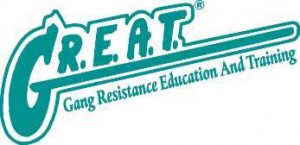
The Gang Resistance Education and Training (G.R.E.A.T.) elementary curriculum is a skills-based curriculum designed as a precursor to the middle school curriculum. This component establishes the foundation that prepares children for the intensified content and cooperation exercises taught in the middle school curriculum, while developing a positive bond between law enforcement and youth. Reaching children at an earlier stage of development allows for a better transition into the middle school curriculum. The elementary curriculum has integrated National Learning English Language Arts Standards and National Health Standards and is based on effective research practices.
Goal
The goal is to prevent violence while developing a positive bond between law enforcement and youth during their early developmental years. The curriculum can be used in conjunction with and reinforcement of other prevention programs and as a precursor to the G.R.E.A.T. middle school curriculum.
Program Structure
The G.R.E.A.T. elementary curriculum was designed for fourth and fifth grade students. Children who have aggressive behavior in the elementary school years are more likely to display antisocial and violent behavior as adolescents and young adults. By providing prevention programs to students in elementary and middle school, it is believed that such programs have a better chance of affecting the developmental course of the problem behavior.
The Lesssons
The G.R.E.A.T. elementary curriculum consists of six 30- to 45-minute lessons designed to be taught in sequence. Each lesson is accompanied by a parent letter that the student takes home explaining the lesson and encouraging parent/student interaction.
1. G.R.E.A.T. Beginnings
- Program Introduction
- Ground Rules
- Bullying, Victim, and Bystander
2. To Do or Not to Do
- Decisions and Outcomes
- Identifying Adults When We Need Help
3.Loud and Clear
- Clear Messages
- Practicing Different Ways of Communicating
4. Staying Cool When the Heat Is On
- Identifying When We Feel Anger
- Practicing Controlling Anger
5. We’re All in This Together
- Similarities and Differences
- Respecting Others
- Golden Rule
6. G.R.E.A.T. Days Ahead
- Program Review
- Being a G.R.E.A.T. Citizen
- G.R.E.A.T. Promise


